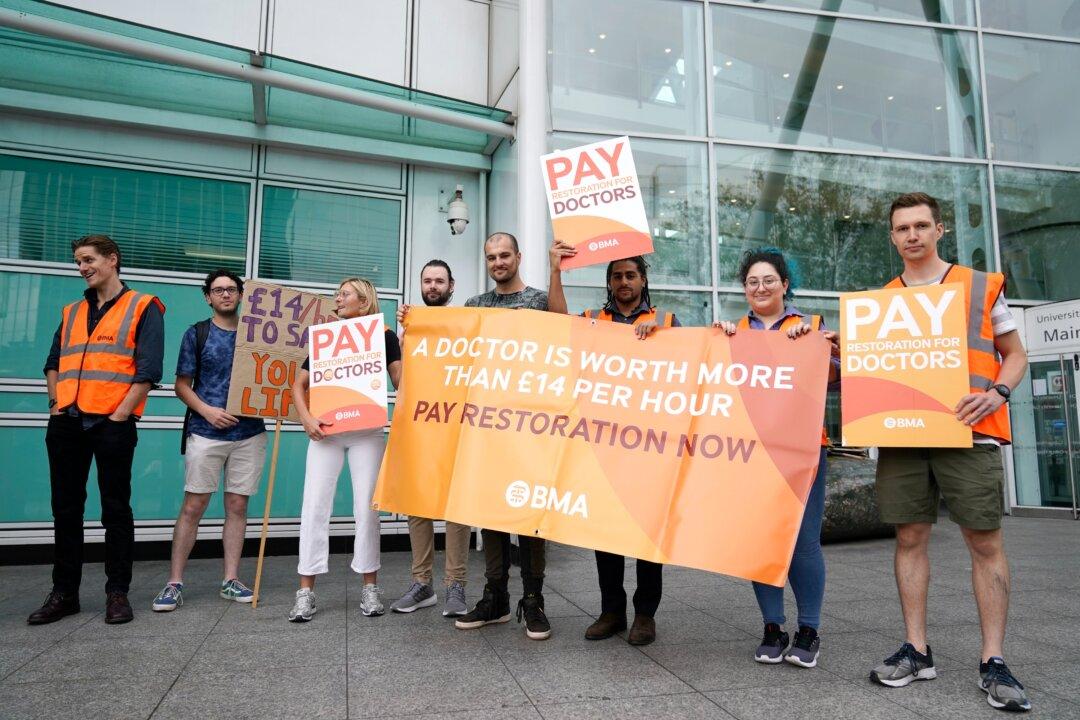A “historic” joint walkout by junior doctors and consultants this week will cause “unprecedented disruption for patients,” according to NHS leaders.
Consultants in England will walk out for 48 hours from Tuesday and will be joined by their junior colleagues on Wednesday, the latter will then continue their strike over pay on Thursday and Friday, a first by both groups in the NHS’s service’s 75-year history.





